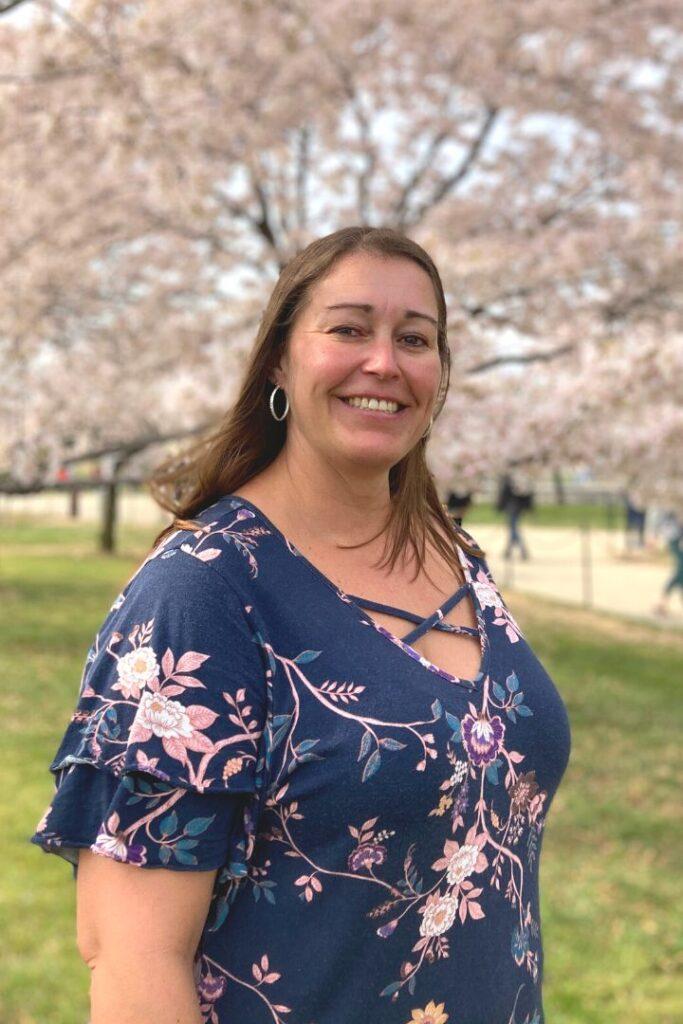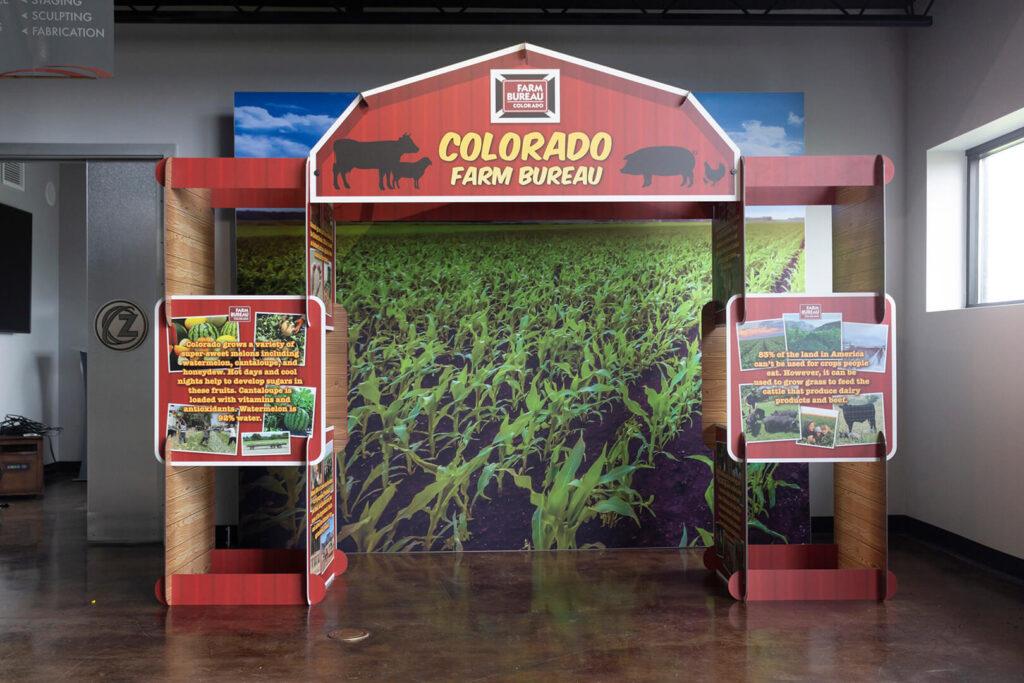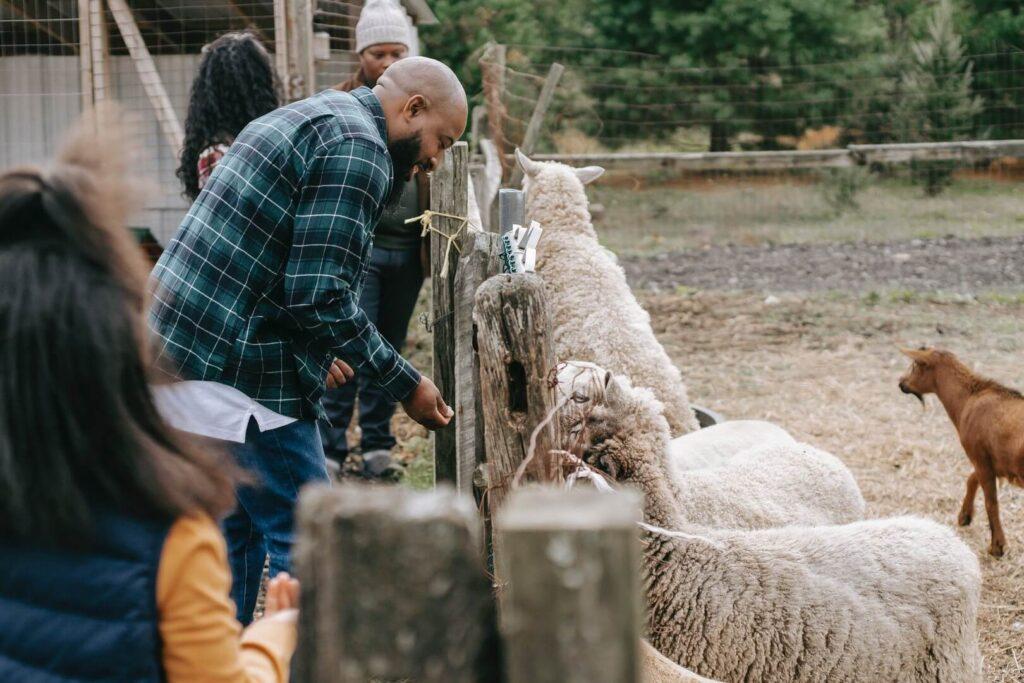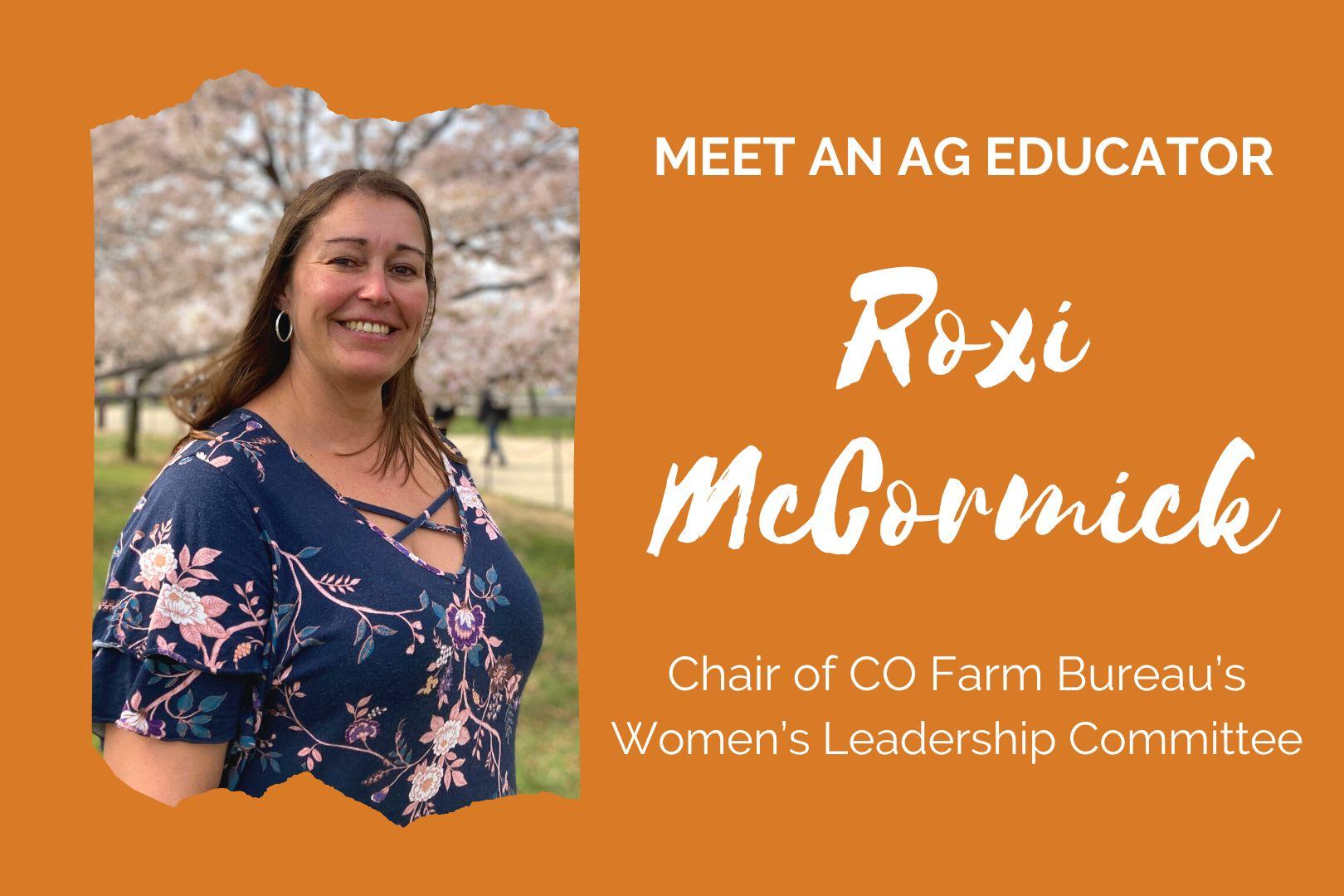
As anybody involved in a Farm Bureau chapter can testify, volunteers are the heartbeat of the organization. And in the busy agriculture world, volunteers often wear a lot of hats. Roxi McCormick, from Colorado Farm Bureau, is no exception. She and her husband own a multi-state agronomic consultancy, but Roxi’s also found time to serve as the chair of the Women’s Leadership Committee (WLC).
Roxi talked to us right after she got back from a national leadership conference in Washington, D.C. She made still more time to chat with us about the conference, the WLC’s programs, and more.
Exhibit Farm: Could you explain the purpose of the WLC?
Roxi McCormick: Our mission statement is to promote agriculture through education, outreach, and development. So we try to create different outreach programs to reach as many youth and adults [as possible], to create new leaders for our next generation.
EF: What kind of leadership development programs do you guys do specifically?
RM: I just came back from a women’s boot camp in communication and development of leaders. I went in completely terrified of doing something like this, and I came out actually feeling more confident in my [ability] to sit down and have a conversation, one-on-one or even in front of a group. It was a communication boot camp to build confidence in yourself, to get out of your head so that you aren’t talking down on yourself.
It’s there to help teach us about leadership, to teach us how to communicate better. We [also] got into media communication, social media communication. It was a long four-day boot camp, but it was absolutely amazing. It was strictly for women, and we even did a sit-down with our legislators, sat down and talked with them. So it was absolutely amazing, huge eye-opener for me.
EF: Is that a larger-scale version of what y’all do in Colorado?
RM: So on our end, we do a summer ag institute where we help teachers. We send them to a smaller boot camp where they learn about agriculture on the farms. They go to different areas of Colorado and learn about agriculture, and then they take [that] back to their classrooms and try to implement it into their curriculum.

And we run the Colorado Ag in the Classroom. Schools can sign up and then we bring in volunteers from rural areas — or even just within the towns — to read [an ag-accurate] book to the classrooms. Lately with COVID, we’ve been doing a lot of it virtual. We’ll sit out with our cows or in the barn and read to the the classrooms virtually.
We just started a Leadership in Ag Webinar last year. We do it in March because it’s National Ag Month and we’ve been having women in ag on our webinars talking about how they got into ag and the reasons why they’ve gotten into ag.
EF: What are some of the takeaways you hope people learn from those events?
RM: That we’re — we’re all the same people. We’re all here together to work together. [Farmers have] kept ourselves so silent that it seems like we’ve excluded ourselves away from urban society. We need to basically come back together and say hello again. And that’s what a lot of this is, is to say hey, there shouldn’t be a divide between us, there shouldn’t be an urban and rural because we’re all the same people.
Another thing we work with is Senior Field Studies, which is a group of kids at Bear Creek High School. We bring them out [through] a placement program across the state of Colorado where they come and spend a week living out on the farm. And they live and breathe and work with us for an entire week — it’s a huge eye opener.
And [what they do] just depends on where they get placed. There’s a group of kids that go to a ranch that has no electricity, and they live for a week with no electricity. But they get to see what ranching life is like.
EF: How did ag education become something you wanted to invest in?
RM: Watching my kids. It’s been amazing seeing how my kids are growing up in this. My husband and I own an ag business, so we’re on a totally different side of the agricultural world. We’re seeing things a little bit differently than just living on the farm or ranch. So having my kids working within our business and learning that aspect of things, showing them what hard work is, and then [them] going to school and taking what they’re learning and teaching their friends with it, has just been fun.
EF: And how did you get involved in Farm Bureau in the first place?
RM: I was a stay-at-home mom and our business hadn’t gotten to at the point where we’re at [now], and I wanted to find a way to give back a little more and get more involved in agriculture. So I found Farm Bureau online and that’s how it started. I got into the county level, and my county was a small county that didn’t do a lot and they welcomed me with open arms.

